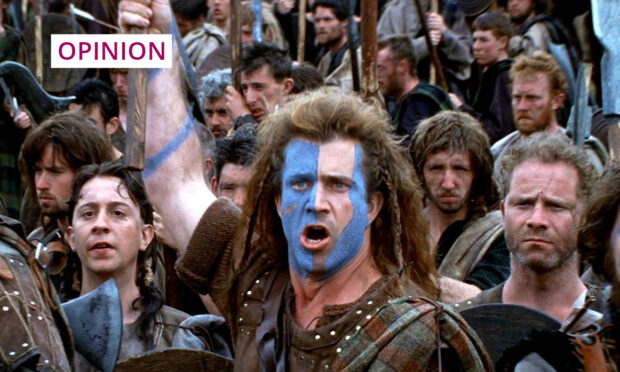Radio phone-in shows can fairly bring out the radges.
And this week London radio station LBC received a call from an English guy who is now settled in Dundee.
He claimed that daughter went to school here. However, her education was narrow and insular, he said.
History was particularly grim. All she learned there was “William Wallace, Braveheart, Freedom”.
I really laughed hearing that.
History is my personal passion and a big part of my professional life. I know fae experience that this guy was misinformed.
The Dundee-based caller claimed pupils in Scotland only get “a narrow field of information”.
Incorrect.
‘Meaningful culture progress’
“Aye, it wis aabdy” is the name of a project run in Aberdeenshire, where pupils at Finzean Primary explored the fact that their primary school had been founded and paid for by the profits from chattel slavery.
With help from the council, lottery funds and mentorship from Professor Geoff Palmer, the school produced a book on that history, copies of which were distributed to schools across the region.
Finzean Primary even teamed up for zoom calls with a class in the Caribbean to discuss the shared heritage further, bairn to bairn.
Enlightening, internationalist, and certainly not a “Braveheart” story of Scottish exceptionalism.
History lessons in Dundee taught “everything that was bad about Scotland was down to the English”, the caller claimed/havered.
But Scottish history classes put places and events in their local, national and international context, as even a quick chat with a teacher of a glance at the SQA website will reveal.
What the caller is referring to, however, is a sign of real meaningful culture progress in Scotland these last 20 years.
We are now comfortable exploring our real past and we are not ashamed to understand our country’s history.
The fabled Scottish Cringe – where we would be so shamed by our supposed inferiority that we would attack any bold showing of Scottish culture in public life – has receded.
I would argue that, in precise opposition to what the guy ringing up LBC was claiming, Scottish history has got far less Anglophobic thanks to our increased cultural confidence.
School days
When I was at school in the early 2000s, history class consisted mostly of the teacher slapping on a VHS about the Nazis.
Scotland’s story – if it existed at all – was subsumed with a more dominant British narrative.
I hated history and couldnae wait to drop it.
What Scottish history I did get was informal and very often Anglophobic. Our current anthem Flower of Scotland emerged from and is symbolic of a time when Scotland saw its history as one of enmity to and defeat by England.
Such a song would not be written today. The English arnae the enemy any more.
I know the English national anthem got booed recently at Hampden but I’m sure that that is a pantomime relic from these old days.
If England’s men won a major trophy these days, most Scots wouldnae be that bothered.
The fevered days of supporting Anyone But England are cooling.
New outlook
Bestselling modern history books show our new internationalist outlook; Tom Devine’s work explores our role in Empire, our migrancy and our place within the union while Murray Pittock’s new history of Scotland shows its worldliness in its title Scotland: The Global History.
Modern Scotland is increasingly able to look into its past with clear eyes.
We still see all the inventors, innovators, adventurers, merchants and warriors that have gone forth from Scotland, sure.
But now we see them in their contexts of crusade, exploitation, cooperation and collaboration with others, very much including our nearest neighbours.













Conversation